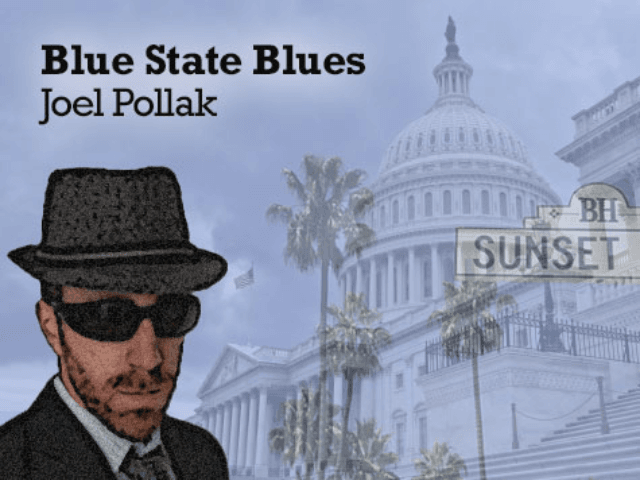This week saw a sudden flurry of attempts to rid America of symbols of the Confederacy–not just the flag at the South Carolina State House, but statues, street names, and even songs.
While many welcomed the changes as a way to heal the wounds of last week’s Charleston massacre, others warned that the campaign against the Confederacy was not about the South at all, but part of a left-wing assault on America itself.
Rush Limbaugh even warned that the U.S. flag would soon be a target. Greg Gutfeld of Fox News–a friend and fellow Breitbart News columnist–said that Rush’s comments were a “fear tactic.”
Actually, the left–and not just Louis Farrakhan–had been targeting the American flag long before Charleston.
Here in California, student leaders at the University of California Irvine banned the U.S. flag from display in a campus building in March. They claimed the Stars & Stripes were a “trigger” that might offend illegal aliens. The flag was removed “respectfully,” a source told Breitbart News.
Obama himself targeted the American flag in October 2007, bizarrely, as his presidential campaign gained steam. He ostentatiously stopped wearing a U.S. flag pin in his lapel, dissenting from his fellow legislators, many of whom had begun wearing the pin in the aftermath of the 9/11 attacks.
The flag pin, he explained to ABC News, had become “a substitute for true patriotism,” which he defined as “speaking out on issues that are of importance to our national security.”
That stance–which implied that Obama’s colleagues were less patriotic than he–became a major flashpoint over the next few months.
A voter at a Democratic primary debate in April 2008 asked Obama why he did not wear a flag pin. Obama flat-out lied in response: “I have never said that I don’t wear flag pins or refuse to wear flag pins.” He argued that it was more important to speak out against the Iraq War, and about “economic fairness,” than it was to wear the flag on his suit jacket.
Voters were not convinced. Some even handed him flag pins to wear.
Finally, he gave in. By May 2008, he quietly pulled off what Time called a “flag pin flip-flop”:
On Tuesday, he was sans pin on the Senate floor, but then later donned it while speaking to working-class voters in Missouri during the evening. “I haven’t been making such a big deal about it. Others have. Sometimes I wear it, sometimes I don’t,” Obama said.
Obama fought the American flag, and the American flag won.
But there should be no doubt that Obama, and his ideological kin, would avoid the U.S. flag if they could, no matter how much they protest otherwise. Their hostility to American exceptionalism is deep.
Some of my liberal Facebook friends–many of them Harvard graduates, not Farrakhan cultists–were uncomfortable with President Obama’s recent claims that mass shootings do not happen in other “advanced countries.” Not because they like guns, but because they reject the notion that the U.S. is more “advanced” than others.
Though such opinions have great influence in Washington and Hollywood, the rest of the country feels differently, by a strong and overwhelming majority.
The Confederate flag is different. It has conflicting meanings that are not reconciled easily. Many of the people who want it torn down are genuine American patriots, including proud sons and daughters of the South, who see that flag as a symbol of slavery and hatred, or who simply wish to honor the feelings of their neighbors.
But the speed of the change ought to worry Americans everywhere. The Confederate flag had little to do with the Charleston murders, and the political debate could have waited another week, until the dead had been buried and eulogized.
Instead the politicians and the media added the flag to their list of hobbyhorses. They could not, as Rahm Emanuel once said, let a crisis go to waste.
That is not how a healthy society reacts to loss.
And so Americans must be vigilant. The left may lose a few, but it never quits.

COMMENTS
Please let us know if you're having issues with commenting.